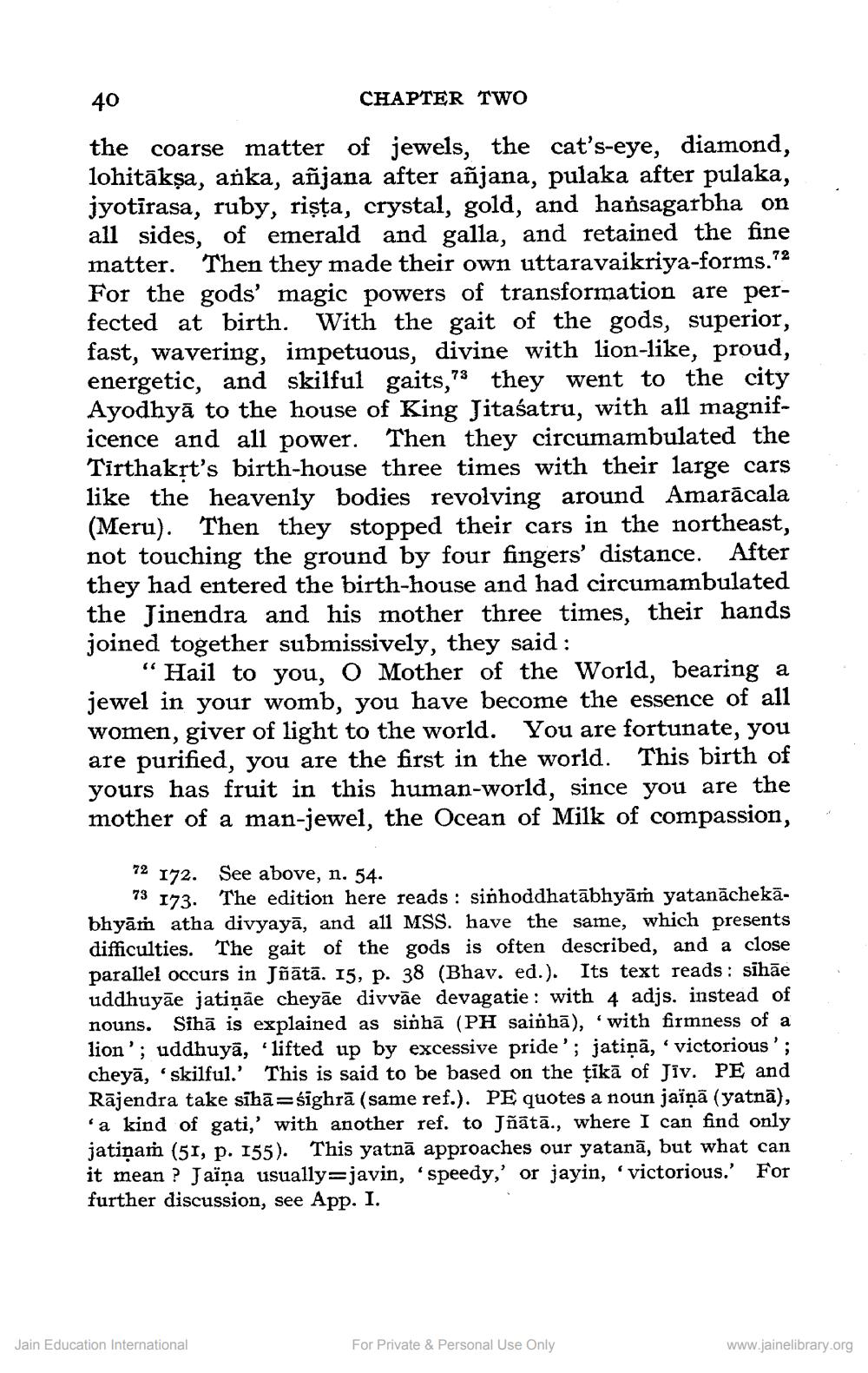________________
40
CHAPTER TWO
the coarse matter of jewels, the cat's-eye, diamond, lohitākşa, anka, añjana after añjana, pulaka after pulaka, jyotīrasa, ruby, rista, crystal, gold, and hařsagarbha on all sides, of emerald and galla, and retained the fine matter. Then they made their own uttaravaikriya-forms.72 For the gods' magic powers of transformation are perfected at birth. With the gait of the gods, superior, fast, wavering, impetuous, divine with lion-like, proud, energetic, and skilful gaits,73 they went to the city Ayodhyā to the house of King Jitaśatru, with all magnificence and all power. Then they circumambulated the Tirthakrt's birth-house three times with their large cars like the heavenly bodies revolving around Amarácala (Meru). Then they stopped their cars in the northeast, not touching the ground by four fingers' distance. After they had entered the birth-house and had circumambulated the Jinendra and his mother three times, their hands joined together submissively, they said:
“Hail to you, O Mother of the World, bearing a jewel in your womb, you have become the essence of all women, giver of light to the world. You are fortunate, you are purified, you are the first in the world. This birth of yours has fruit in this human-world, since you are the mother of a man-jewel, the Ocean of Milk of compassion,
72 172. See above, n. 54.
73 173. The edition here reads : sinhoddhatābhyāṁ yatanāchekābhyām atha divyayā, and all MSS. have the same, which presents difficulties. The gait of the gods is often described, and a close parallel occurs in Jõātā. 15, p. 38 (Bhav. ed.). Its text reads : sihāe uddhuyāe jatiņãe cheyae divvãe devagatie: with 4 adjs. instead of nouns. Sihā is explained as sinhā (PH sainbā), 'with firmness of a lion'; uddhuyâ, lifted up by excessive pride'; jatinā, victorious'; cheyā, 'skilful.' This is said to be based on the tikā of Jiv. PE and Rājendra take sībā=śighrā (same ref.). PE quotes a noun jaïņā (yatnā), 'a kind of gati,' with another ref. to jñātā., where I can find only jatiņam (51, p. 155). This yatnā approaches our yatanā, but what can it mean ? Jaïņa usually=javin, 'speedy,' or jayin, 'victorious.' For further discussion, see App. I.
Jain Education International
For Private & Personal Use Only
www.jainelibrary.org




